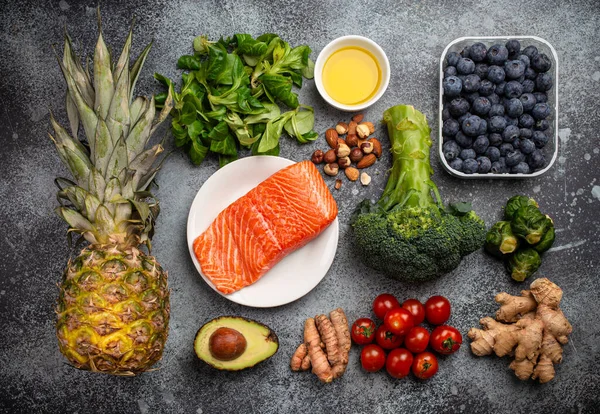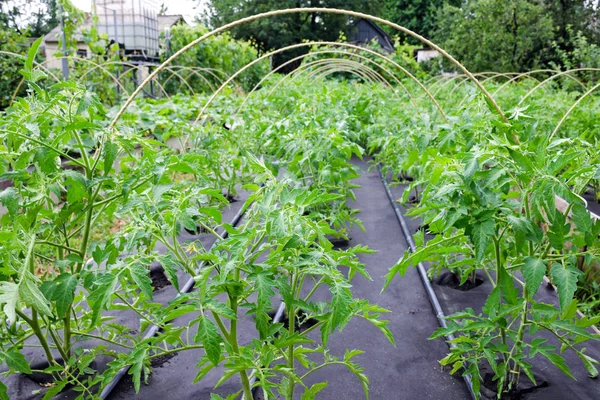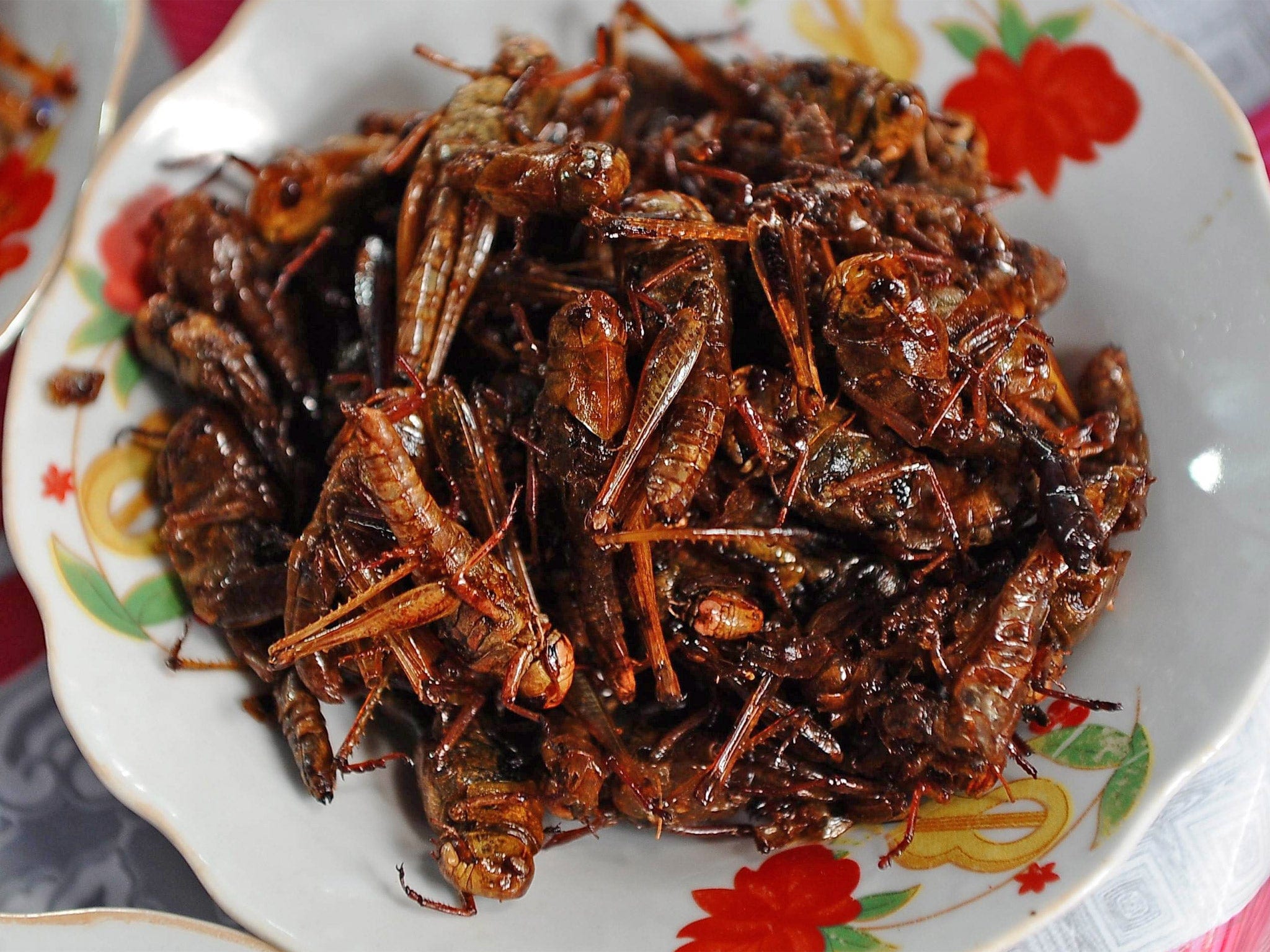Inflammation, while a natural part of the immune system’s defense mechanism, can become a silent killer when it turns chronic. Chronic inflammation is linked to severe health conditions, including heart disease, diabetes, arthritis, Alzheimer’s, and even cancer. However, your diet can be a powerful ally in the fight against inflammation.
By consuming foods rich in anti-inflammatory compounds—such as antioxidants, polyphenols, and omega-3 fatty acids—you can actively reduce inflammation and enhance your overall well-being using food as medicine. In this ultimate guide, we break down the 20 best anti-inflammatory foods and show you how to make them a delicious part of your everyday meals.
Table of Contents
What is Inflammation?
Inflammation is the body’s natural response to injury, infection, or toxins. Acute inflammation is beneficial as it helps the body heal. However, when inflammation persists for weeks, months, or even years, it becomes chronic and can harm your tissues and organs.
Symptoms of chronic inflammation include fatigue, joint pain, digestive problems, and persistent swelling. Fortunately, a well-planned diet filled with anti-inflammatory foods can be your first line of defense.
Top 20 Anti-Inflammatory Foods
The good news is that your diet can play a significant role in controlling inflammation. By incorporating anti-inflammatory foods that are rich in antioxidants, omega-3 fatty acids, and other essential nutrients, you can support your body in reducing inflammation and promoting overall health.
Read Next: Which are the Best Superfoods for Good Health in 2025
Here’s a comprehensive guide to the best anti-inflammatory foods and how they can benefit your health.
1. Turmeric
Known for its vibrant yellow color, turmeric is a powerhouse of curcumin, a compound with potent anti-inflammatory and antioxidant properties. Studies have shown that curcumin can reduce inflammation at the molecular level, making it particularly beneficial for conditions like arthritis. Adding turmeric to your meals, especially combined with black pepper to boost absorption, is an excellent way to combat inflammation.
2. Green Tea
Green tea is packed with catechins, especially epigallocatechin-3-gallate (EGCG), a potent antioxidant that can reduce inflammation and combat oxidative stress. Drinking green tea regularly may help lower inflammation markers and promote better heart health.
3. Fatty Fish
Fatty fish like salmon, mackerel, sardines, and tuna are rich in omega-3 fatty acids, particularly EPA and DHA. These essential fats are known to reduce inflammation and protect against chronic illnesses like heart disease, arthritis, and neurodegenerative conditions. Aim to include fatty fish in your diet at least two to three times a week.
4. Berries
Berries such as blueberries, strawberries, raspberries, and blackberries are rich in antioxidants, particularly anthocyanins. These compounds help reduce inflammation, combat oxidative stress, and support heart health. They’re a delicious addition to smoothies, oatmeal, or as a snack.
5. Leafy Greens
Leafy greens like spinach, kale, collard greens, and Swiss chard are packed with anti-inflammatory nutrients, including vitamins A, C, and K, as well as antioxidants. These greens support your immune system and reduce inflammation, making them a staple in any anti-inflammatory diet.
6. Olive Oil
Extra virgin olive oil, a key component of the Mediterranean diet, contains oleocanthal, a compound with anti-inflammatory properties comparable to ibuprofen. Incorporating olive oil into your cooking or as a salad dressing is a simple way to fight inflammation while benefiting your heart health.
7. Avocados
Loaded with healthy monounsaturated fats, fiber, and antioxidants such as carotenoids and tocopherols, avocados are excellent for reducing inflammation and improving heart health. Their creamy texture makes them perfect for salads, smoothies, or as a toast spread.
8. Dark Chocolate
Dark chocolate with high cocoa content (at least 70%) is rich in flavonoids, which have strong anti-inflammatory properties. When consumed in moderation, dark chocolate can benefit heart health and reduce inflammation markers.
9. Tomatoes
Tomatoes are an excellent source of lycopene, a powerful antioxidant that reduces inflammation. Cooking tomatoes enhances their lycopene content, making tomato-based dishes like soups and sauces even more beneficial for reducing inflammation.
10. Ginger
Ginger contains compounds like gingerol, which possess strong anti-inflammatory and antioxidant properties. It’s particularly useful for fighting inflammation related to muscle pain and arthritis. Add fresh ginger to teas, stir-fries, or soups for a flavorful health boost.
11. Nuts and Seeds
Nuts like almonds and walnuts, along with seeds such as flaxseeds and chia seeds, are packed with healthy fats, fiber, and antioxidants. They help combat inflammation and reduce the risk of chronic conditions like diabetes and heart disease. Snack on a handful or sprinkle them over your meals for an easy anti-inflammatory boost.
12. Garlic
Garlic is renowned for its allicin content, a compound with strong anti-inflammatory and immune-boosting properties. Regular garlic consumption can help reduce inflammation and lower the risk of chronic diseases. Use it fresh in your recipes for maximum benefits.
13. Fermented Foods
Yogurt, kefir, kimchi, sauerkraut, and other fermented foods are great for maintaining a healthy gut microbiome. A healthy gut is key to reducing inflammation throughout the body. These foods are rich in probiotics, which support digestion and fight inflammation.
14. Peppers
Both bell peppers and chili peppers contain powerful antioxidants like quercetin and capsaicin. Capsaicin, in particular, has been shown to alleviate inflammation and help with pain management related to arthritis .
15. Broccoli
Broccoli, along with other cruciferous vegetables like cauliflower and Brussels sprouts, contains sulforaphane, a compound that decreases inflammation and helps neutralize toxins. Broccoli is a versatile ingredient that can be steamed, roasted, or added to salads.
16. Pineapple
Pineapple contains bromelain, a natural enzyme with anti-inflammatory properties and digestive benefits. It can help reduce swelling and pain in conditions like osteoarthritis. Including pineapple in smoothies or as a fresh snack can provide these benefits.
17. Beets
The betalains in beets are potent anti-inflammatory antioxidants. Beets help reduce oxidative stress and support heart health, making them an excellent addition to your salads, juices, or roasted dishes.
18. Cherries
Cherries, especially tart varieties, are rich in anthocyanins and flavonoids, which are powerful anti-inflammatory compounds. Regular consumption may help reduce symptoms of arthritis and gout while supporting overall health.
19. Sweet Potatoes
Sweet potatoes are packed with beta-carotene, fiber, and anti-inflammatory nutrients that protect against oxidative stress. They’re an excellent alternative to regular potatoes and can be baked, mashed, or added to soups.
20. Mushrooms
Certain mushroom varieties, like shiitake and maitake, are rich in polysaccharides and anti-inflammatory compounds. They also boost immunity and help reduce inflammation, making them a tasty and nutritious addition to your meals.
Anti-Inflammatory Meal Ideas
Incorporating these foods into your daily diet doesn’t have to be complicated. Here are some ideas:
- Breakfast: Smoothie with berries, spinach, avocado, and green tea.
- Lunch: Grilled salmon with steamed broccoli and olive oil dressing.
- Snack: A handful of walnuts or dark chocolate.
- Dinner: Turmeric-spiced lentil soup with a side of leafy greens.
- Dessert: Fresh pineapple or cherries.
Lifestyle Tips to Reduce Inflammation
- Stay Hydrated: Water helps flush out toxins that contribute to inflammation.
- Exercise Regularly: Moderate physical activity lowers inflammation markers.
- Manage Stress: Chronic stress triggers inflammation, so practice mindfulness or yoga.
- Get Quality Sleep: Aim for 7–8 hours of restful sleep to allow your body to repair.



